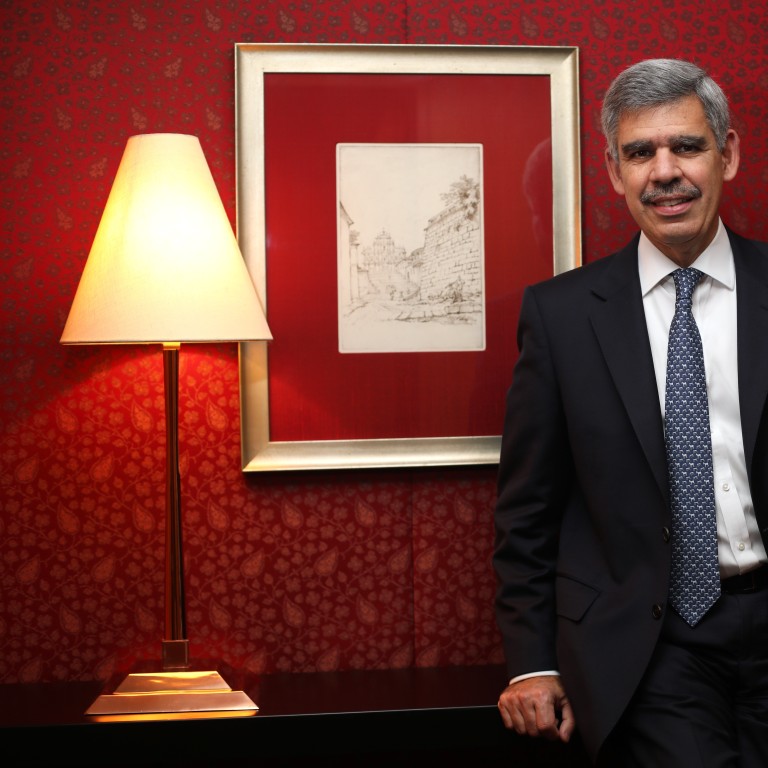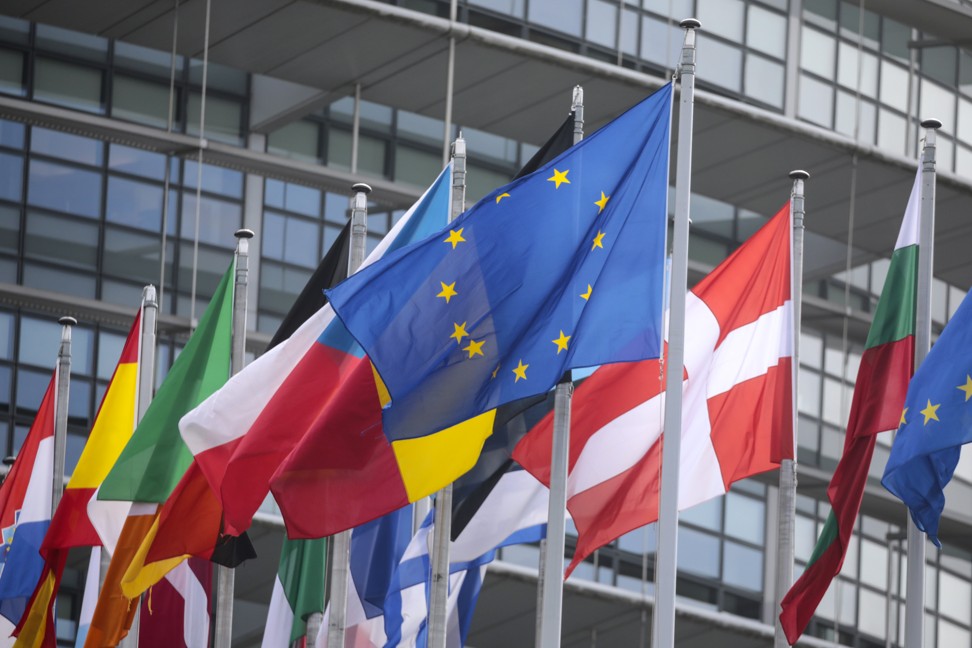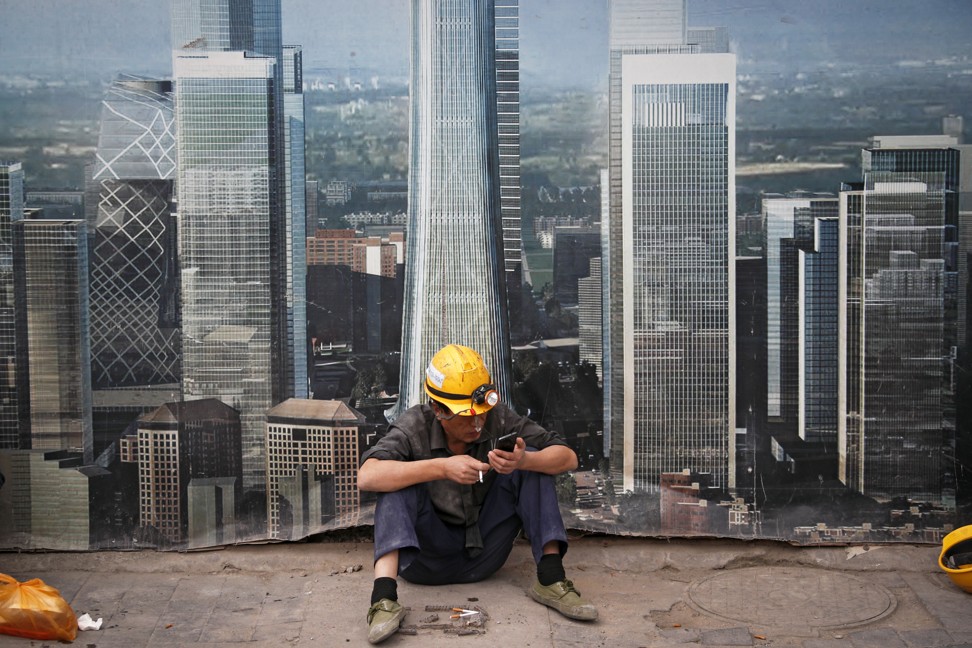
China economy at more risk from EU recession than US trade war, economist El-Erian says
- Allianz Group chief economist talks of sizeable risk of European Union recession this year, posing a threat to China, as biggest trading partner
- China, Canada and Mexico have worked out ‘appropriate approach’ to dealing with US trade tariffs, says Mohamed El-Erian
The “sizeable” chance of a recession in the European Union poses a greater risk to the Chinese economy than the ongoing US-China trade war, according to noted economist Mohamed El-Erian.
The EU is China’s largest trading partner and, according to El-Erian, chief economic adviser to the Allianz Group, the world's third-largest financial services company by revenue, has “between 50 and 60 per cent” chance of entering recession later this year or early next.
“The extent to which Europe has slowed has surprised a lot of people,” El-Erian said, noting a range of issues facing the bloc, from Brexit, to a major change in German political leadership, long-running protests in France, upcoming elections in Spain and a new Italian government that is just “finding its feet”. The International Monetary Fund cut its forecast for Eurozone growth this year to 1.3 per cent, he noted, “and I suspect we will go sub 1 per cent quickly”.

El-Erian disagreed with European Central Bank president Mario Draghi’s assessment last week that the chances of a Eurozone recession in the near-term remain “low”.
“The trouble is that when you grow at 1 per cent or below you have the heightened risk of what economists call ‘stall speed’, which is even though you are going forward, you are not going forward fast enough, and therefore you lose altitude,” he said, in an interview in Hong Kong.
“So I do see that there’s a sizeable risk of a recession in Europe by the end of this year and the beginning of next year,” he said, adding that structural reforms in the EU’s labour markets and fiscal stimulus in Germany and other northern European countries may reduce the risk.
China needs to resume its deleveraging programme to reduce debt and risky lending, as well as reduce its reliance on short-term monetary stimulus and state-owned enterprises, El-Erian said.

“The handoff from the short-term stimulus measures to the longer-term reform effort is going to be critical,” he said. While there is a “very high awareness” among Chinese officials of the need for reforms, “it is too soon to say” whether they will take the necessary steps.
“Most countries struggle mightily with the trade-off between short-term stimulus and longer-term reforms,” he said. “Because one of the issues with most long-term reform measures, especially on the structural side, is that it takes time for the benefits to come, but the costs are up front.”
El-Erian compared the Chinese economy to an aeroplane, with officials trying to change an old, exhausted engine for a new one mid-flight. “If you do not have a strong tailwind [from the global economy] to push you forward, and, in addition, that tailwind becomes a headwind, you hesitate to turn down the old engine.”
Therefore, the success of China’s reform effort will depend in good part on the future performance of the global economy.
El-Erian was also sanguine about the outlook for upcoming trade negotiations between the US and EU, as well as Japan-US talks. A clear pattern has been established for success, he said, with escalation eventually giving way to a defusing of tensions, with concessions on both sides leading to a trade deal.
“The Trump administration made the call that [the] cooperative approach to trade does not get results. So it went to an uncooperative approach,” he said, referring to the US’ use of tariffs as a weapon.
While the initial reaction for trading partner nations to the imposition of tariffs is to react negatively, governments are now realising that the US government will double down in response, with the White House “willing to incur damage to the economy as part of the process”, El Erian said.
“The longer the uncertainty [from the trade conflict] lasts, the bigger the impact on investment,”
The size of the US economy meant this is an “uneven game”, with the cost to the US less than the cost to the country on the other side of the trade conflict.
“So that is why you saw Mexico go from escalation [of the trade conflict] to defusion, and Canada went through the same cycle and China is going through the same cycle today,” El Erian said, predicting that Japan and the EU will go through the same cycle.
While there will be “skirmishes here and there” in the upcoming negotiations, he does not expect another trade war. “I think people have realised the appropriate approach” to negotiating with the US. However, it takes time to arrive at such a realisation, El Erian said, which is “a function of what you can sell domestically”.

